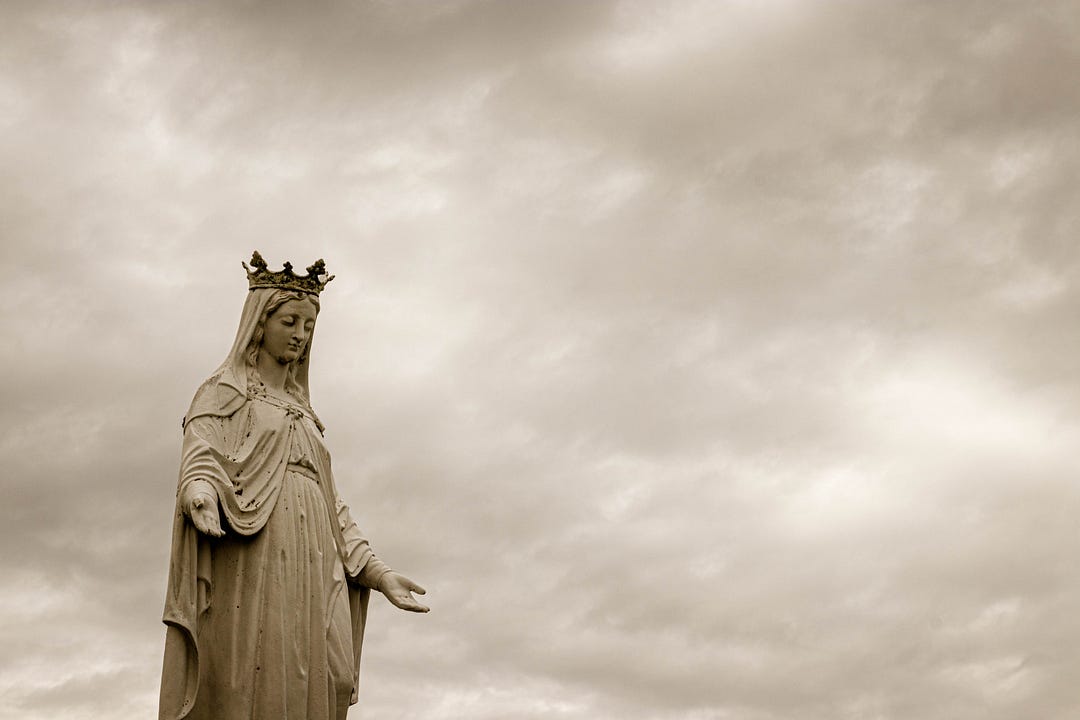Time for a Language Upgrade?

In the Beginning:
The true history of eleventh-century civilization is a source of inspiration for contemporary apocalypse dramas. After five centuries of living in danger and uncertainty, walls were built around the town, so that the populous could focus on living rather than surviving. The church was the center of the community, attracting fairs, incorporating a marketplace and theatre, into its orbit. Technology had not developed to the stage that it required concentrated capital beyond the means of the ordinary citizen or town, creating an egalitarian society with a locally based economy in which wealth was created through production. Artisans and tradespeople typically made up four-fifths of the town populace. In the beginning, the economy grew through the activity of industrious producers before merchants gained dominance. Barter was the currency of exchange.
And so I wondered, does the early medieval society qualify as a capitalist society? That question led to The History of Capitalism, (2014), published by THE LEGATUM INSTITUTE “an international think-tank and educational charity focussed on promoting prosperity.”
Reconsidering the entrenched concepts
Using Marx’s concept, feudalism precedes capitalism and so feudalism cannot be capitalism, but, says author David Abulafia, writing in the chapter titled A Global Transition: From the Mediterranean to the Atlantic, with a refreshingly open approach, the problem lies in how one defines capitalism.
While the medieval manor was a feudalistic system, the culture within the walled city created an alternative to feudalism, providing a way for a serf to become a freeman, by residing within the town for a year and a day.
Post-war Marxist historians, notably Maurice Dobb, Paul Sweezy and Rodney Hilton (who was the only one with a strong medieval research interest), were keen to find out how well the performance of the western European economy matched the sequences set out by Marx, and to identify the “solvent” that transformed socalled feudal society into capitalist society. But the problem lay in defining what this capitalist society was. The History of Capitalism David Abulafia

Abulafia echoes Mumford when he contemplates a transitional period between feudalism to capitalism. Mumford breaks down the transitional process into dominants, recessives, mutants, and survivors. In the following quote, the Church is used in the example but the transitions can manifest through any cultural form:
In Rome before Constantine the Christian Church was a mutation …. In the medieval city the Church was a dominant….. In the great seventeenth century capitals, the Church had become a recessive : still an imposing visible presence, hut no longer a unifying and dynamic social force. In the metropolis today the Church is a survival: its power rests upon numbers, wealth, material organization, not upon its capacity to give its stamp to the daily activities of men Lewis Munford , The Culture of the Cities
The Contemporary Definition- Static or Transformative?
I decided to consult the contemporary dictionary definitions, as that should best represent what the term “capitalism” connotes in contemporary times.

The first definition by Dictionary.com and is disingenuously constructed:
cap·i·tal·ism
an economic and political system in which a country’s trade and industry are controlled by private owners for profit, rather than by the state.
If a definition assigns a motive to one, it should assign a motive to the other and read like this:
cap·i·tal·ism
an economic and political system in which a country’s trade and industry are controlled by private owners for profit, rather than by the state for profit.
Or some other motive. How about:
cap·i·tal·ism
an economic and political system in which a country’s trade and industry are controlled by private owners for profit, rather than by the state for the betterment of mankind.

Most people will acknowledge that all states do not function for the betterment of mankind. It gets very complicated when one assigns motives. I prefer definitions that do not presuppose motives:
cap·i·tal·ism
an economic and political system in which a country’s trade and industry are controlled by private owners, rather than by the state.
That is much cleaner, avoiding the following questions:
Is it possible that private owners can have motivations besides profit?
Is it the intention of the state to run industry for no profit?
Do non-profit entities NOT make profits?
If non-profits do not make profits, why are laws created by the state to allow non-profits to establish for-profit subsidiaries?
The term “non-profit” is a misnomer.
Non-profits can conduct profit-making activities. They are regulated differently than other for-profit entities, required to either break-even or show a negative balance at accounting time, and for this reason alone are branded “non-profits” despite their for-profit activities. It is more accurate to call them “Roll Over Organizations” Or “Evergreen Funds”, or “Roll Over B Corporations” meaning that they are legally required to distribute profits into the organizational cause.
To avoid showing a year-end profit, the so-called non-profits can invest profits in property and equipment and executives and staff. The IRS requires compensation packages for nonprofit executives and other nonprofit employees, to be reasonable, but does not define reasonable. In exchange for complying with regulations, non-profits can raise debt-free funding, not generally available to the free-enterprise sector, and use volunteer labor as long as volunteer labor is not employed in commercial activity unrelated to their non-profit purpose.
States can also charter non-profit corporations for public purposes, though some State Constitutions, such as the Constitution of Maine, Article IV, Part Third, section 14, prohibit the Legislature from chartering corporations. That constitutional prohibition has been ignored by the Maine Legislature since 1976 when the Maine Legislature deemed centrally managing the economy to be an essential government function, and ever since the state-corporate network has expanded, effectively transforming the State of Maine into a public development corporation in partnership with private corporations, all operating for the betterment of mankind, or so they say.

Merriam-Webster has a better definition.
Definition of capitalism
: an economic system characterized by private or corporate ownership of capital goods, by investments that are determined by private decision, and by prices, production, and the distribution of goods that are determined mainly by competition in a free market Merriam Webster Dictionary
That makes more sense in that it does not attach motivation to private ownership, but if the term capitalism refers to only privately-owned capital goods, (and what is a capital good?”), is it NOT capitalism if a capital good is owned by a state corporation? - or a so-called public entity such as a State University — or a non-profit organization? Is it NOT capitalism if the public entity or private non-profit organization makes a profit from publicly-funded capital goods?
Is there a different term for identical functions merely because the agency of ownership is different? What do we call state capitalism, if the word “capitalism” signifies the character of the agent conducting the functions, rather than the function itself?
Does state-capitalism have a definitive existence?
I decided to look up “state capitalism” to see if I could find a term to define it which does not use the term “capitalism” since capitalism is defined as
“industry controlled by private ownership” occluding it from control by public ownership.
There is no definition for “state capitalism” on Dictionary.com, which defines “capitalism” as “private ownership of trade and industry”, making “state capitalism an oxymoronic term. Dictionary.com is sticking to its guns.
Merriam Webster defines state capitalism
Definition of state capitalism: an economic system in which private capitalism is modified by a varying degree of government ownership and control
So how does Merriam Webster define ”private capitalism”?
Answer: It doesn’t:
“private capitalism”
The word you’ve entered isn’t in the dictionary. Click on a spelling suggestion below or try again using the search bar above.
https://www.merriamwebster.com/dictionary/private%20capitalism

Let's try Merriam Webster for “free enterprise”
Definition of free enterprise
freedom of private business to organize and operate for profit in a competitive system without interference by government beyond regulation necessary to protect public interest and keep the national economy in balance
I decided to look for another definition of “private capitalism”.
A general google search resulted in switching the search term to “capitalism”.
People also ask
What is private capitalism?
Capitalism is an economic system in which private individuals or businesses own capital goods. The production of goods and services is based on supply and demand in the general market — known as a market economy — rather than through central planning — known as a planned economy or command economy.Apr 6, 2020
Is there more than one type of capitalism?
Under “ People also ask” I found this, which is more interesting:
What are the three types of capitalism?
The three types of Capitalism are:
Pure Capitalism.
Laissez-faire Capitalism.
Right Wing Socialism.
The above question and answer is attributed to You Create Money, A Producer Rewarded Economic System
So we are back to where this story began in the medieval city wherein economic growth was the result of the productive activity of the populous, eighty percent of whom were producers. This site looks interesting to explore, but that is for another day.
Is there a new “radicalism” brewing that defines the function as the function rather than the agent of the function?
I am not yet ready to put forth a new definition of capitalism but my inquiry has produced two interesting resources that appear to be sharing my wavelength I have not attempted to examine the term” socialism” herein, an ever-popular buzz word in right-wing memes, and so I end this inquiry with the observation that the term “socialism” is a born of a time preceding the rise of fiat currency, calling for a reconsideration of everything.
Originally published at https://www.datadriveninvestor.com on March 19, 2021.
Comments
Post a Comment